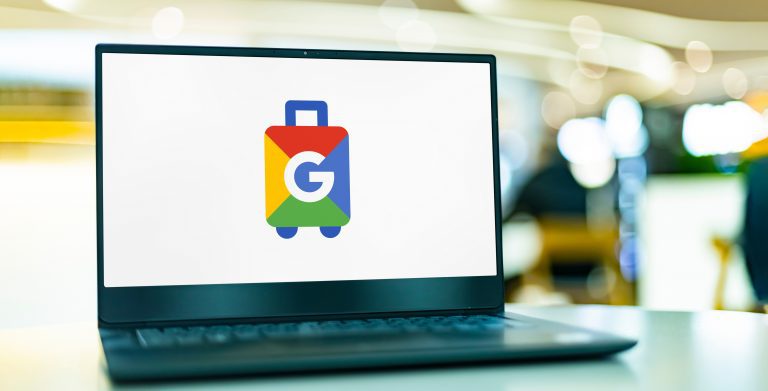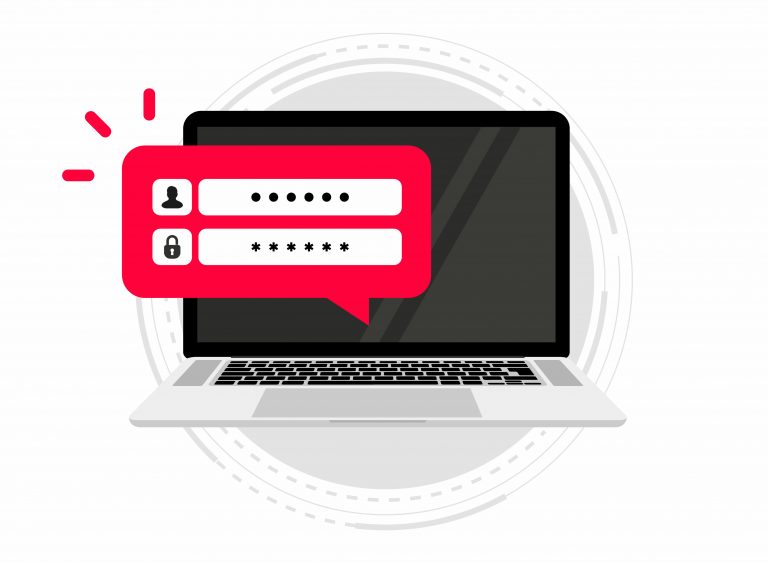Securing Your Health Data: Privacy Measures in Telemedicine
January 25, 2024Telemedicine has become an increasingly popular option for accessing healthcare services, allowing patients to consult with healthcare providers remotely. What…

In today’s digital age, using travel websites has become essential for planning and booking trips. These sites collect personal data from users, such as name, email, credit card information, and travel itineraries. While this data is necessary for the smooth functioning of these sites, it also puts users at risk of cyber threats. Therefore, it is crucial to understand the risks associated with using travel sites and how to protect personal data.
Safeguarding sensitive information and preventing identity theft and fraud is crucial when using travel sites. These websites often collect personal data, including passports, credit cards, and contact details. If this sensitive data ends up in the wrong hands, it can result in financial loss and privacy breaches. Cybercriminals can exploit personal information to make unauthorized transactions or create fake identities. By prioritizing the security of personal data on travel sites, individuals can have peace of mind and protect themselves from potential harm. It is essential to be aware of the risks and take necessary precautions to ensure the safety of personal data.
Not safeguarding personal data on travel sites can lead to various risks, including identity theft, fraud, and financial loss. Hackers can easily obtain sensitive information and confidential data such as credit card details, passport numbers, and personal addresses, which can be used for unauthorized transactions and misuse of personal information. Moreover, personal data can be sold on the dark web, potentially causing long-term damage to one’s reputation and privacy.
It is crucial to prioritize data protection measures, such as using strong passwords, enabling two-factor authentication, and avoiding public Wi-Fi networks, to mitigate these risks and ensure data protection and the safety of personal information.
In 2018, a major travel site experienced a data breach, exposing the personal information of millions of users. This breach resulted in financial losses for many individuals, with unauthorized transactions and fraudulent activities occurring. The incident highlighted the importance of safeguarding personal data on travel sites and prompted increased awareness and stricter security measures within the travel industry.
Travel sites utilize personal data to enhance user experience and provide personalized services. Here are the steps involved in this data processing process:
Travel sites collect various types of personal information from users, including:
Reviewing the privacy policy of travel companies and sites is important to understand how they handle and protect your personal information.
Travel sites extensively use personal data to enhance services and user experiences. Common ways these sites utilize personal data include managing bookings and reservations, providing personalized recommendations and offers based on customer data and individual preferences, offering customer support and communication, processing payments, preventing fraud, and conducting marketing and advertising activities. It’s important for users of travel sites to be aware of how their personal data is being used and to take necessary steps to protect it.
To safeguard personal data, users should thoroughly read privacy policies and terms of service to understand how their data will be used. It’s advisable to limit the sharing of personal information to what is strictly necessary for booking and communication purposes. Regularly reviewing travel site data protection and updating privacy settings on travel sites are essential. Using strong passwords and enabling two-factor authentication can significantly enhance security. Users should be vigilant about phishing scams and ensure they provide personal data only on secure websites. Monitoring accounts for suspicious activities and reporting them promptly is also crucial. Following these expert tips can help prevent the negative consequences of data breaches and keep personal information safe, ensuring that hackers don’t ruin your vacation.
When booking travel online, protecting our personal data is of utmost importance, as the information we share can be sensitive and valuable. Travel websites often require a range of personal details, including name, contact information, payment details, passport numbers, and travel preferences. If mishandled or accessed by unauthorized parties, this personal data collected can lead to serious privacy breaches and financial fraud.
Using strong passwords when accessing travel sites is essential to prevent unauthorized access and the potential for data security breaches. To create a strong password, it’s important to include a combination of uppercase and lowercase letters, incorporate numbers and special characters, and avoid using common words, phrases, or personal information. A robust password should be at least 8 characters long and unique for each travel site. This approach is akin to adding multiple layers of security, ensuring that your personal data is well-protected. Additionally, employing two-factor authentication is highly recommended. It’s like adding a deadbolt and a security guard to the door of your personal data, significantly enhancing the security of your online accounts and making unauthorized access much more difficult.
Using public Wi-Fi to access travel sites can jeopardize your personal data. To safeguard your information, it’s advisable to use a Virtual Private Network (VPN), which encrypts your connection and enhances security. Alternatively, using your mobile network’s data is safer than relying on public Wi-Fi, especially for sensitive transactions. If you must use public Wi-Fi, ensure it’s a legitimate and secure network. Also, disabling automatic Wi-Fi connections on your devices can prevent accidental connections to insecure networks. Following these steps will help minimize the risk of compromising your personal and financial data while using travel sites on public Wi-Fi.
Phishing scams pose a significant threat to the security of personal data on travel sites. To protect yourself, it’s crucial to remain vigilant and be cautious of suspicious emails, texts, or phone calls that ask for personal information, particularly if they are travel-related. Always verify the source before responding to such requests by double-checking the sender’s email address or phone number. It’s important to avoid clicking on links within emails or messages unless you are completely sure of their authenticity and trustworthiness. Additionally, never share sensitive personal information like passwords or credit card details over email or text, even if the request appears legitimate. Lastly, when entering personal information on any website, ensure the site is secure by looking for “https” and a lock symbol in the address bar. Following these steps can significantly reduce the risk of falling victim to phishing scams and help safeguard your personal data on travel sites.
Keeping software and devices updated is essential to protect personal data on travel sites. This involves enabling automatic updates for your operating system, web browsers, and antivirus software to ensure you have the latest security patches. Regularly updating all installed applications and plugins is also crucial, as outdated software can be vulnerable to cyberattacks. Unused or outdated software should be removed from devices to reduce security risks further. Keeping mobile devices updated with the latest firmware is important for maintaining security. Lastly, using trusted app stores for downloading and updating applications helps prevent the installation of malicious software. These steps enhance device security and safeguard personal data when using travel sites.
In today’s digital age, it is essential to take precautions to safeguard our personal data, especially when using travel sites for booking flights, hotels, and activities. Unfortunately, data breaches do happen, and if you find yourself a victim of one, it’s crucial to know what steps to take.
Regularly changing your passwords is a key practice for protecting personal information on travel websites. Selecting strong and unique passwords for every account is important to ensure your safety in travel services. These passwords should include uppercase and lowercase letters, numbers, and special characters and avoid easily guessable information like your name or birthdate. Updating your passwords every few months is recommended to enhance security further.
Using a password manager can be highly beneficial in this regard. It helps to store your passwords securely and can also generate strong passwords for you, reducing the hassle of remembering complex combinations.
Additionally, if you ever feel uncertain or encounter issues while using travel websites, don’t hesitate to contact the site’s customer service or your bank. They are accustomed to assisting customers who might be lost or confused on their platforms and can offer guidance or help securing your accounts. Following these steps will significantly improve the security of your personal information on travel websites.
If your personal data is compromised on a travel site, immediately change all related passwords to prevent further unauthorized access. Contact the travel site’s customer support and your bank to report the personal data breach and inquire about any remedial actions. Notify your bank or credit card company to safeguard your financial accounts. Regularly monitor your accounts and credit report for any unusual activity. If necessary, file a report with relevant authorities such as the local police or the Federal Trade Commission, especially in identity theft or significant financial fraud. Taking these steps can help mitigate potential damages and manage the situation effectively.
To protect your personal data on travel sites, it’s essential to regularly monitor your bank and credit card statements for suspicious activity and set up account alerts for unusual transactions. Frequent credit report checks can help identify unauthorized accounts or inquiries, indicating potential identity theft. Using a credit monitoring service can provide real-time updates on your credit activities. Additionally, regularly updating passwords and ensuring they are strong and unique for each travel site is crucial to minimize the risk of data breaches. If you suspect your personal data was processed or compromised, report the incident to the authorities immediately to prevent further misuse of your personal information.
When your personal data is compromised on a travel site, it is important to take immediate action. Begin by documenting the incident and recording evidence of unauthorized access or misuse. Contact your local law enforcement agency to report the incident, providing them with detailed information, including the name of the travel site and any supporting evidence. If the incident involves financial fraud, immediately notify your bank or credit card company to secure your accounts. Additionally, consider reporting the incident to a relevant government agency responsible for the data protection laws handling cybercrime, such as the Internet Crime Complaint Center (IC3) in the United States. This proactive approach is crucial in responding to the growing issue of cybercrime, as highlighted by the high number of cases reported in the FBI’s 2020 Internet Crime Report.

Telemedicine has become an increasingly popular option for accessing healthcare services, allowing patients to consult with healthcare providers remotely. What…

In a world where cyber threats are becoming increasingly sophisticated, the importance of having strong passwords cannot be overstated. But…

Are you looking for a new job while still employed? Discreet job searching online is the key to keeping your…